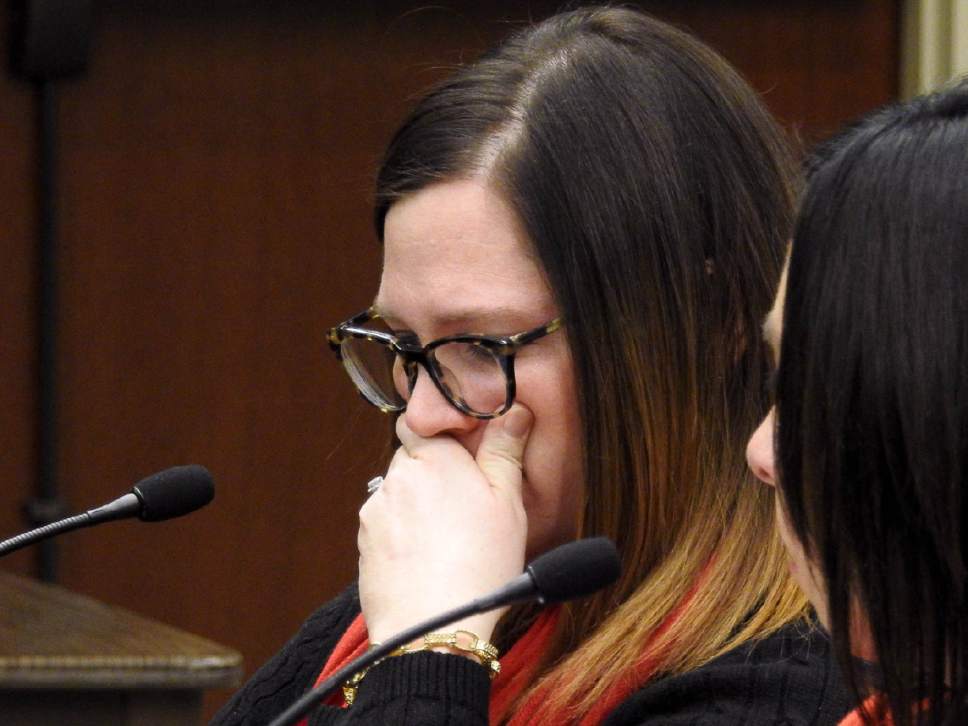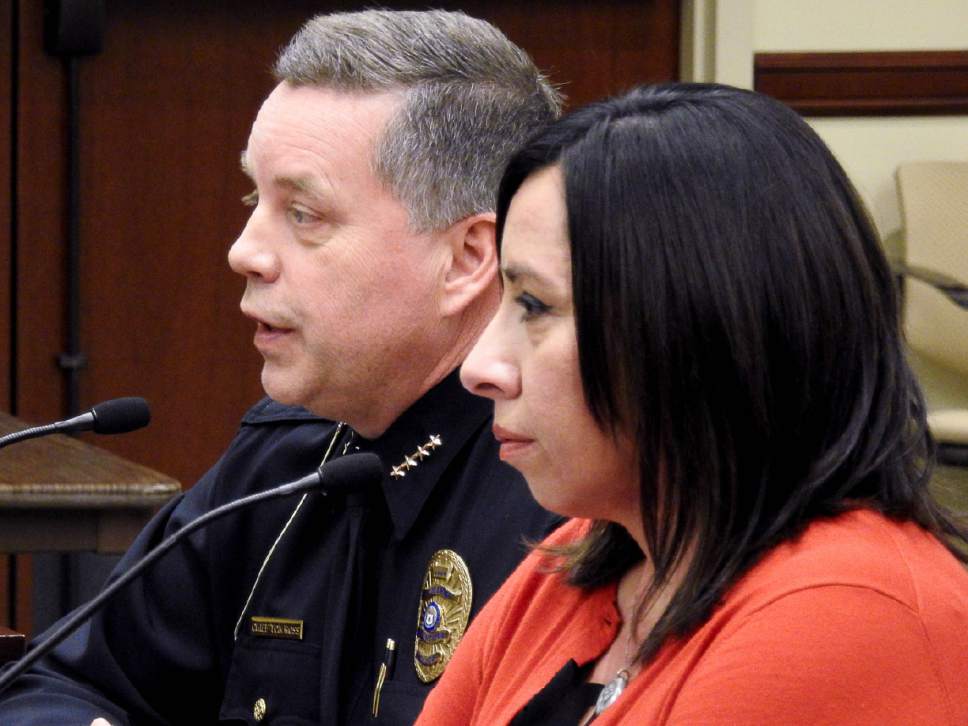This is an archived article that was published on sltrib.com in 2017, and information in the article may be outdated. It is provided only for personal research purposes and may not be reprinted.
For the last 10 years, Alyson Ainscough's rape kit has sat, untested.
A decade has gone by since she went through hours of an invasive exam, during which a sexual assault nurse collected DNA evidence from her body and placed it into a kit to help solve the case of who assaulted her.
She stopped asking the police about the status of her case long ago, she said Friday.
But after she heard that Utah lawmakers this year were considering a bill that would make the testing of kits such as hers mandatory, Ainscough said she got in touch with police again and began asking about her case. The kit is still untested, she was told recently.
On Friday, she made an emotional plea at a legislative committee hearing, urging them to pass HB200.
"I do have a very vivid recollection of undergoing a rape kit examination," she told the House Law Enforcement and Criminal Justice Committee. "… I can tell you it's incredibly invasive and additionally traumatizing, especially when someone has already endured something so violating."
Rep. Angela Romero, D-Salt Lake City, sponsored the bill, which would give Utah's law enforcement agencies 30 days to submit rape kits to the Utah Crime Lab, with testing required by a to-be-determined deadline. It would also create a tracking system for rape kits and trauma-sensitivity training for Utah law enforcement.
Romero became emotional Friday as she told the committee about emails she's received over the last five years from victims whose kits were never processed by the crime lab. She said that passing the bill and mandating testing was "justice served" for those victims.
"It touches you," she said. "... Their perpetrator may never be caught, but they [can] know they went through the whole process and we are listening."
The bill was passed unanimously by the House committee on Friday — to the applause of a packed room — but many representatives on the committee questioned the cost of mandatory testing.
Romero's bill has a fiscal note of $2.4 million yearly. Jay Henry, director of the crime lab, told the committee the funding would allow him to hire more crime lab personnel and pay for DNA supplies to perform more than 900 tests a year.
Brigham Young University associate professor Julie Valentine told the committee Friday that in her research, she found that some Utah jurisdictions submitted their kits for testing more often than others. Mandating testing statewide would eliminate that variable, she said, and could help identify serial rapists.
Utah officials have previously identified an estimated 2,700 rape kits tests that have gone unsubmitted and untested. Henry said half of those have now been tested, and suspect DNA information in each case has been entered into the Combined DNA Index System, a federal database of DNA evidence. In those cases, they have seen identification hits in CODIS 134 times, he said.
Another sex assault survivor, Lorcan Murphy, testified during the committee hearing Friday, telling lawmakers that he never reported his assault because he knew the prosecution rates are low.
"For survivors," Murphy said, "Knowing our evidence will be treated with respect and the urgency it deserves will allow and empower [us] to come forward."
The Tribune does not generally identify victims of sexual assault, but Ainscough and Murphy agreed to be named.
Ainscough said that speaking to the committee was the first time she's publicly spoken about being sexually assaulted. She felt obligated to tell her story, she said, to put a face and a name to those who have been assaulted.
"It does feel validating," she said after the bill passed out of the committee. "It feels like a victory for me and other survivors."
HB200 now goes to the full House of Representatives for consideration.





